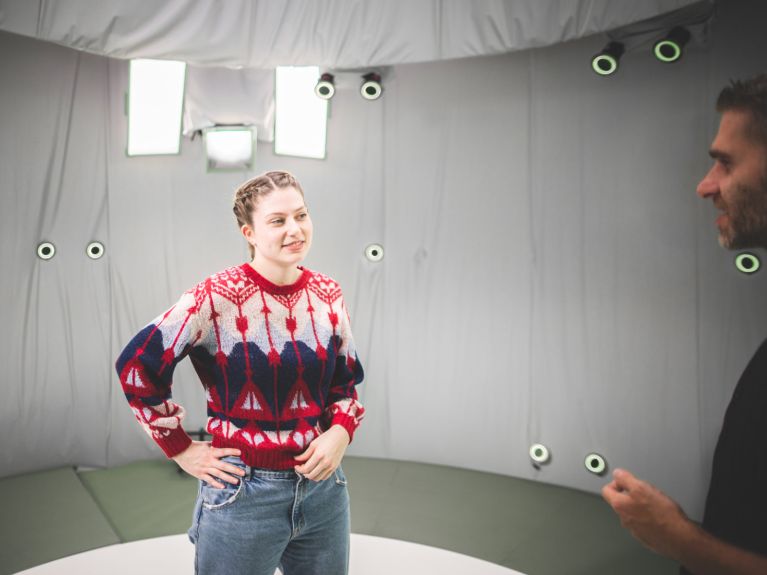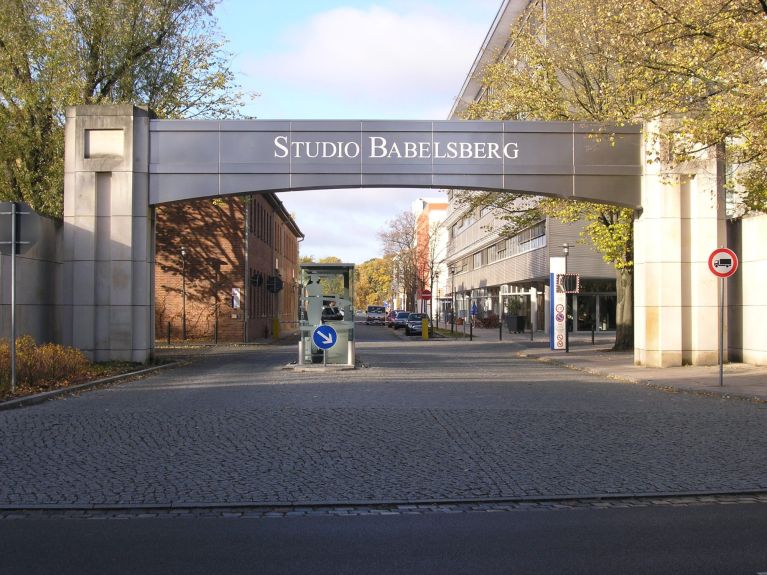Babelsberg embraces the future of cinema
Artificial intelligence could fundamentally change the film industry. Studio Babelsberg in Potsdam is one of the international pioneers in this field.

Like all the films in the Matrix series, the fourth instalment of the science fiction blockbuster is a visual spectacle. In some of the fight scenes, the faces of two film characters are exchanged in a gradual transition, and the camera zooms out of the picture so far that the space beyond the edge of the frame becomes visible. This type of spectacular effect is enabled by artificial intelligence – a tool that is increasingly being used at the film’s production site, Studio Babelsberg in Potsdam. Founded in 1912, it is the second oldest large-scale film studio in the world and the biggest film studio in Europe. It is now one of the leading international film production locations for visual effects (VFX).

How is AI used in film?
The German company Volucap was among those involved in the effects produced for Matrix. Volucap opened Europe’s first volumetric studio in Babelsberg in 2018. In a cylindrically shaped room, 42 high-resolution cameras mounted on all sides record an actor or actress from every perspective in such a way that enables a detailed 3D image to be created. A single recording generates three terabytes of data in the space of one minute. The human being scanned in this way can then be inserted into any film using artificial intelligence, with lighting conditions, camera movements and backgrounds being adapted flexibly as required. Digital figures of this kind, known as Volucaps, are now even offered in online catalogues such as Renderpeople. They are already being used as extras in some scenes.
Will actors be replaced by AI?
These developments are definitely viewed critically in the industry, leading to protests by filmmakers in Hollywood in 2023, for example. For Volucap Managing Director Sven Bliedung von der Heide, the new possibilities have the potential to democratise the film industry. The media entrepreneur estimates that AI offers savings potential of up to 60 percent. “As a small-scale production, you no longer need a VFX department because you can create elaborate effects simply by entering text, so you can tell much bigger stories without needing a huge budget,” says Bliedung von der Heide. Another fascinating possibility: it is possible to create digital doubles for actors. “In future, an older actor will easily be able to slip into the role of their younger self,” says the media entrepreneur.
Matrix without Keanu Reeves?
Something else is conceivable, too: a film or series could be continued even without a particular actor or actress being involved in person in any more. If Keanu Reeves were to decide not to go on acting in the Matrix series, his fans wouldn’t have to do without him: instead of Reeves in flesh and blood, his digital double would appear as Neo on cinema screens.

